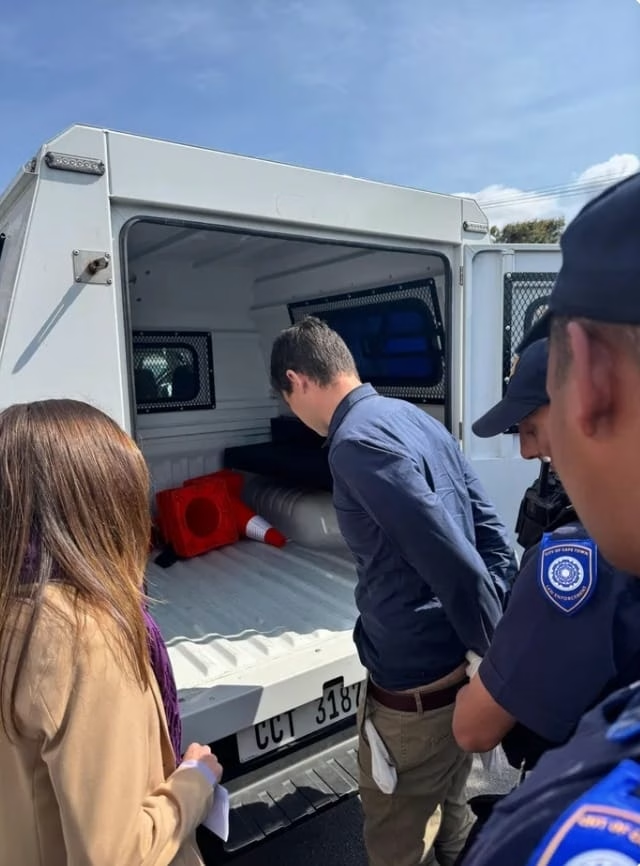
Fake SPCA inspector arrested during interview, exposing a bold act of fraud that risked animal welfare and the SPCA’s integrity. Image credit: NSPCA.
(The Post News) – A Fake Society for the Prevention of Cruelty to Animals (SPCA) inspector arrested is the shocking headline making waves in Cape Town after an individual was caught attempting to deceive one of the country’s most respected animal welfare organisations. The man is now facing serious legal action after trying to pass himself off as a qualified inspector.
Last week, the National Council of SPCAs (NSPCA) confirmed that the suspect was detained following suspicious attempts to secure employment at the Cape of Good Hope SPCA. Initially, his application appeared ordinary, as his CV made no mention of being an inspector. However, in a later submission, he dramatically escalated his claims. He falsely stated that he was a certified NSPCA Inspector and Field Officer while also claiming registration with the South African Veterinary Council as an Animal Welfare Assistant.
To strengthen this false identity, he presented what looked like an authentic Inspector Competency Certificate. Yet, once the NSPCA examined it more closely, investigators quickly discovered it was an impressive forgery, complete with fabricated signatures from senior officials. This bold attempt at deception directly led to the fake inspector arrested.
Fake SPCA Inspector Arrested During Job Interview
On 3 September 2025, during an official interview at the Cape of Good Hope SPCA, the suspect went even further by producing additional fraudulent documents. Fortunately, authorities had already been tipped off. As a result, police intervened during the interview itself, and the suspect was immediately taken into custody. He is expected to remain behind bars until his bail hearing, scheduled for 19 September 2025.
In addition to this arrest, the man is also being investigated by the South African Veterinary Council. Reports indicate that he is linked to at least eight other pending cases at different police stations across Cape Town. The charges he faces are extensive and include fraud, the use of forged documents, and contraventions of both the Veterinary and Para-Veterinary Act of 1982 as well as the Societies for the Prevention of Cruelty to Animals Act of 1993.
The NSPCA has emphasised that impersonating an inspector is not only unlawful but also dangerous. False claims of authority risk undermining the trust placed in inspectors, who are officially empowered by law to protect animals. Moreover, such deception could have jeopardised the welfare of countless animals if it had gone undetected.
Leaders at the NSPCA praised the Cape of Good Hope branch for their thorough recruitment and vetting processes. Their diligence ensured the deception was uncovered before any harm could occur. At the same time, the incident has highlighted the importance of mandatory verification when hiring within animal welfare organisations.
Ultimately, this fake inspector arrested case serves as a powerful reminder of the risks posed by impersonation and fraud. By catching the suspect during the interview itself, the NSPCA not only protected its own reputation but also safeguarded vulnerable animals across the region.
Please share your thoughts contact Thembeka via email: Journalist-thembeka@thepostnews.net



